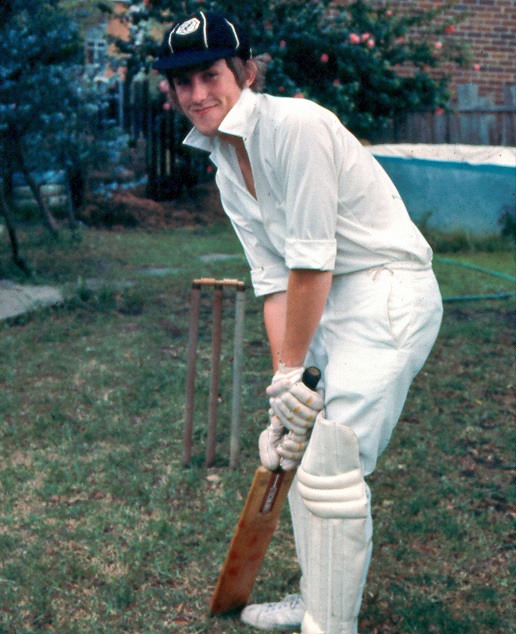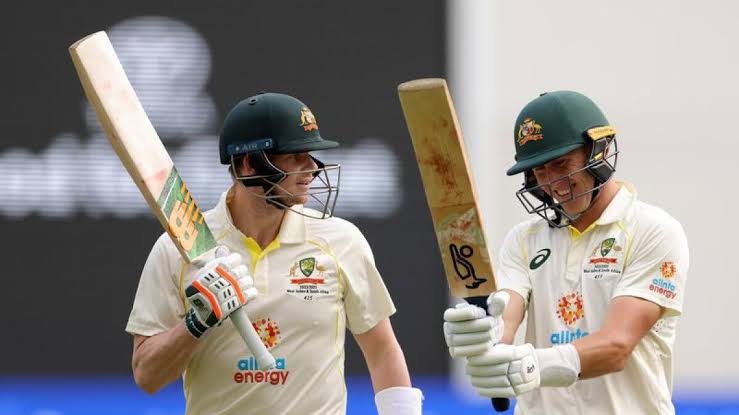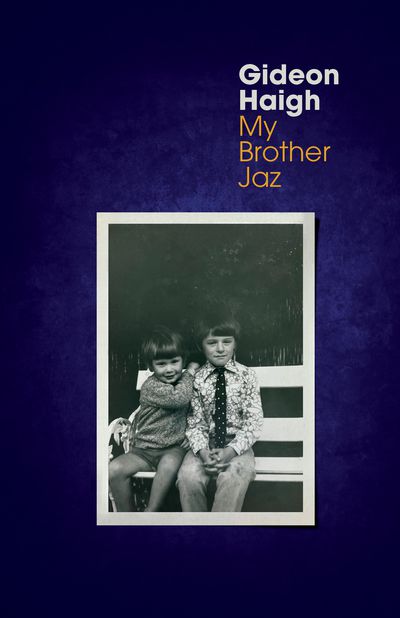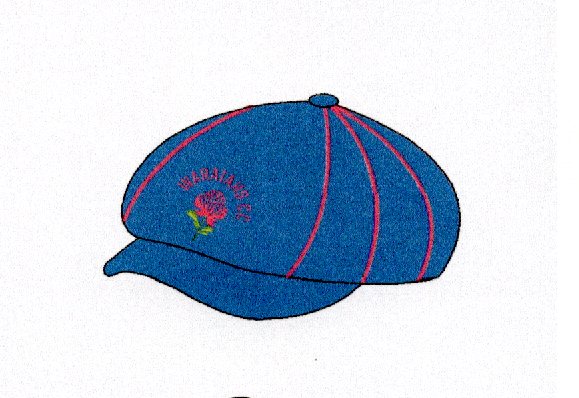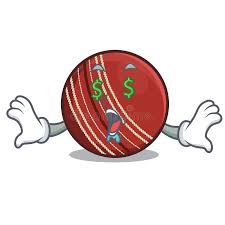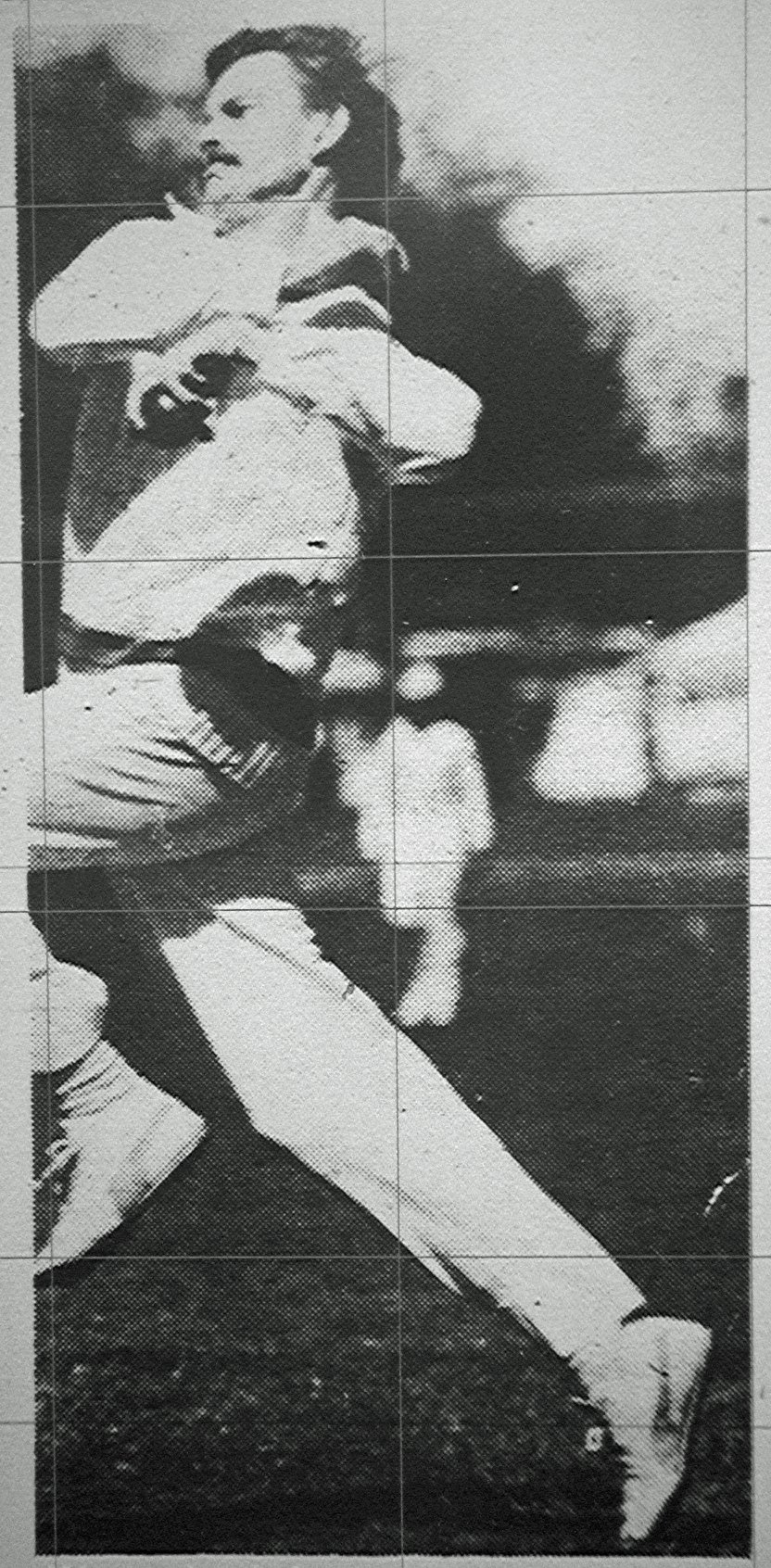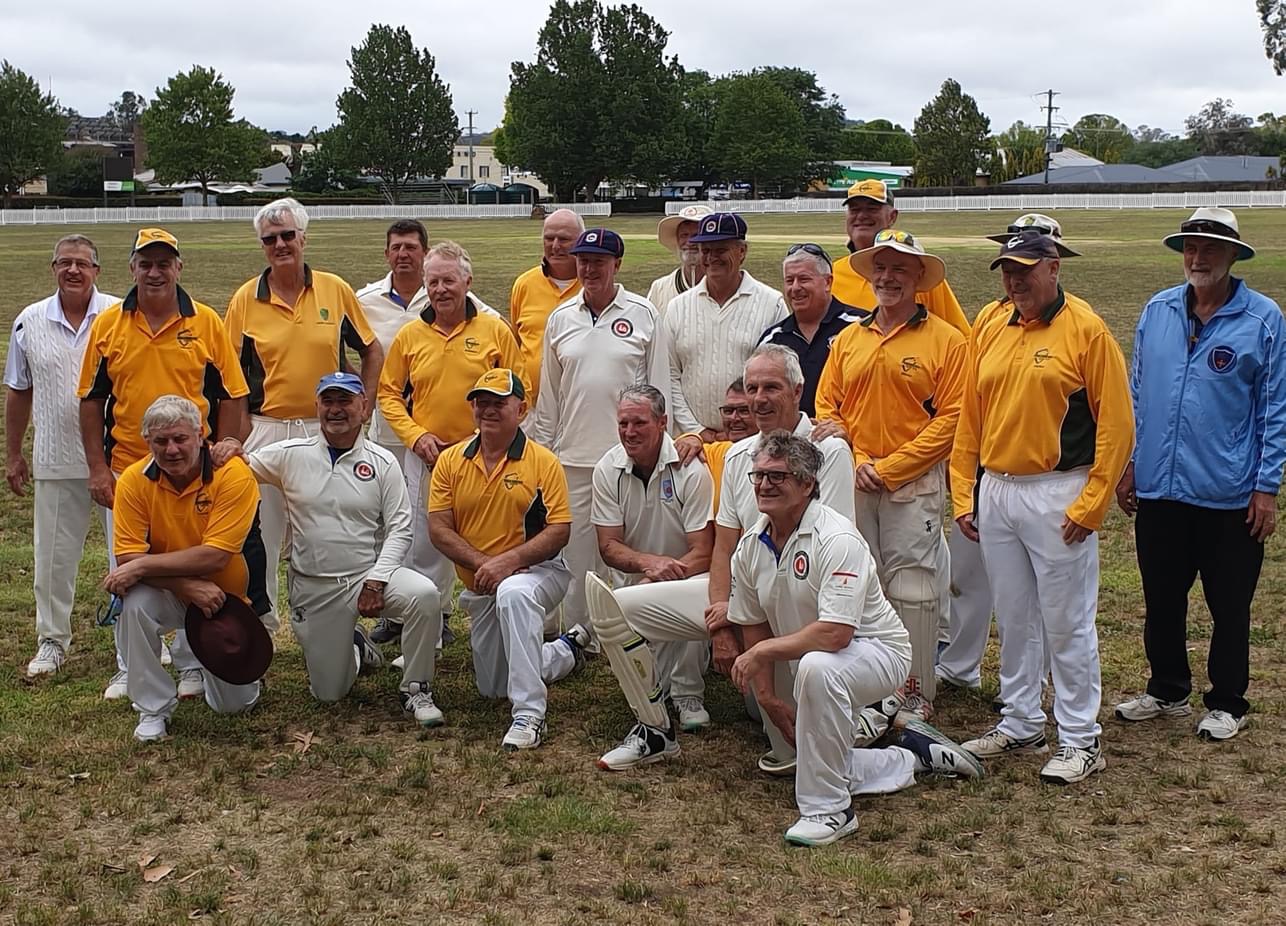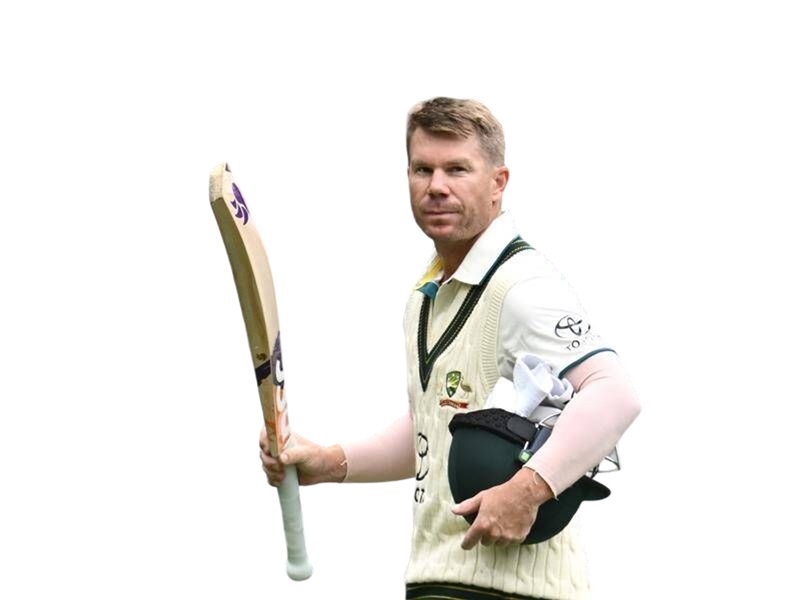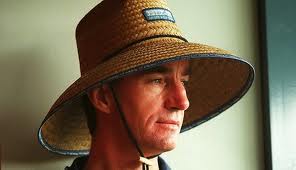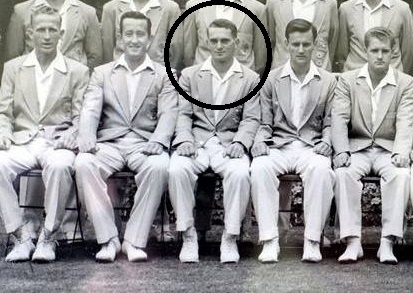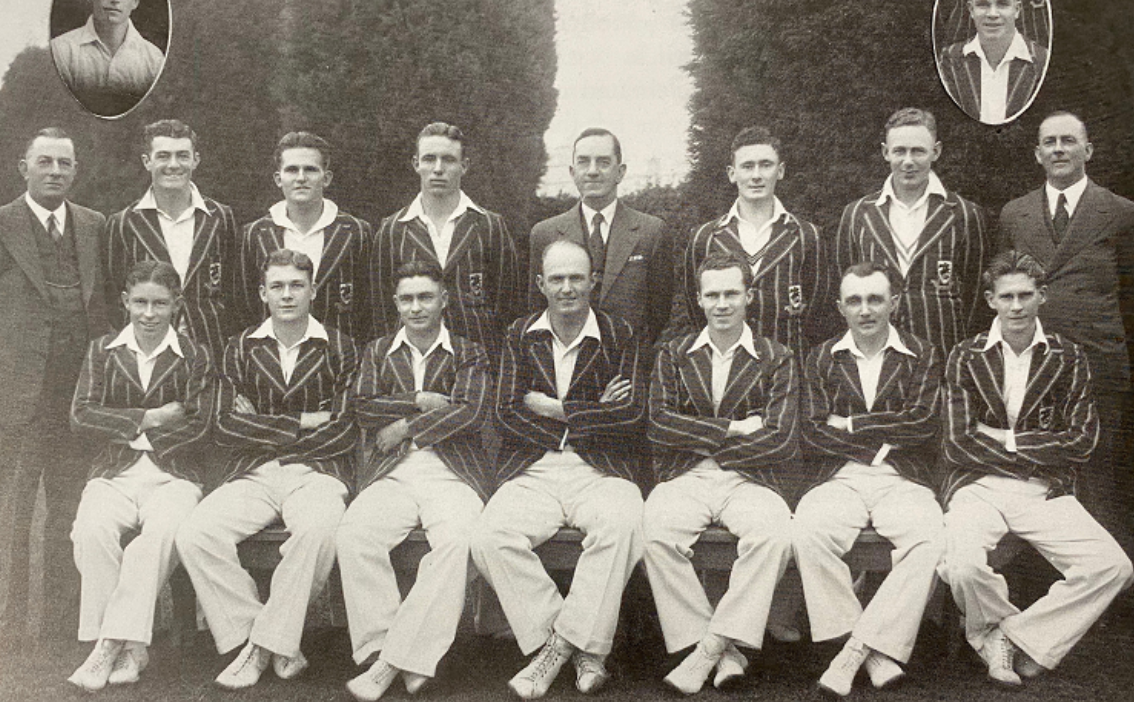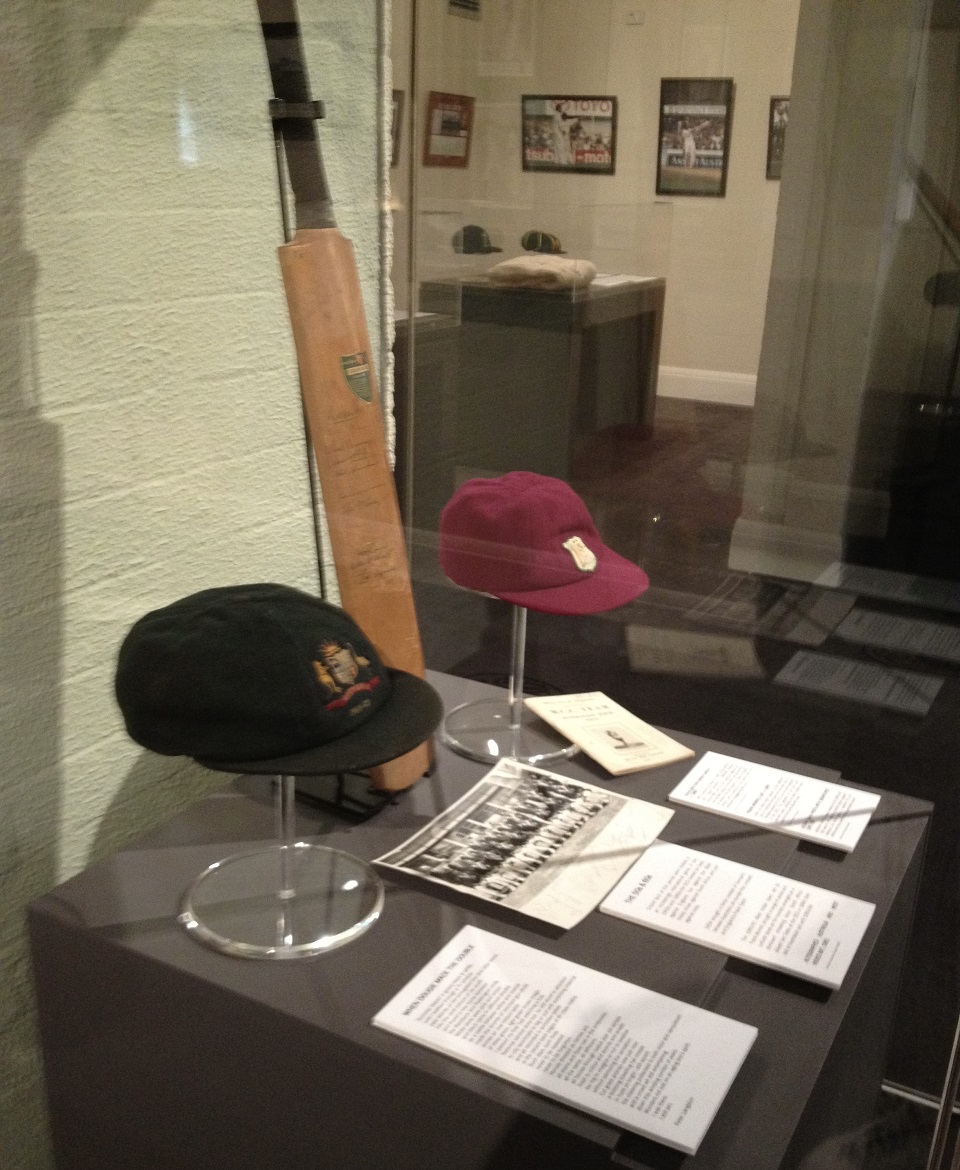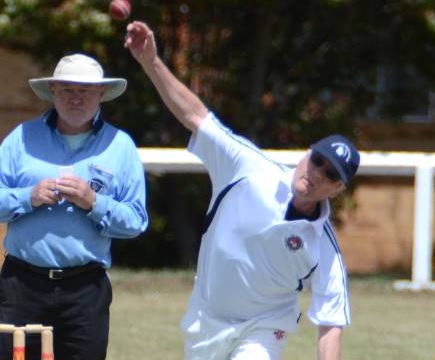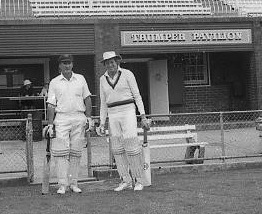About Me
Peter Langston
Current Rating: 5 / 5
www.peterlangstonpoet.com
Tamworth, New South Wales, Australia
I was a teacher for twenty years and a writer forever. I played the game with great passion and commitment from about eight. I had several satisfying innings, bowled more overs than I deserved and held the very occasional screamer ... until I lost my playing mojo in my early 30's. Unfortunately, I've never found my way back beyond the boundary apart from several games where my mates were fun but I was rubbish, so I watch and occasionally write about the game instead. In my other worlds, I have published five volumes of poetry, had a play come to the stage and written about all sorts of topics, in all sorts of way, in all sorts of media. I have been married to Sue since 1979. We have lasted this long because although she has bad taste in men, she can't admit she is wrong. We have three adult children, five grandchildren and more stories than an afternoon can last.
Favourite players: Doug Walters, John Hildred, Steve Waugh, Ian Chappell and Andrew Davis
Favourite grounds: SCG, Lambert Park, The LCG (Langston Cricket Ground)
All-time cricket hero: Doug Walters
Favourite bat: Symonds Tusker, which mocks me from the corner of my study.
Most memorable moment in cricket:
I am old enough that I have forgotten my most memorable moments in cricket but they almost certainly involved mates from the Waratahs Cricket Club of Armidale.
What’s the best cricket advice you’ve ever received:
Most advice is useless. It only works for the bloke giving it.
Partner Sponsors
My Activity
answered
Q: Can you name the players who have bowled left arm spin for Australia in test cricket since 2000?
The players must have at least bowled an over in test cricket for Australia since 2000.
The players must have at least bowled an over in test cricket for Australia since 2000.
https://www.cricconnect.com/profile/1500/cricconnect-quizzes/blog/2748/can-you-name-the-players-who-have-bowled-left-arm-spin-for-australia-in-test-cricket-since-2000
A: 12/14 and a 13th with help from a mate. Missed one of the part-timers. I placed my answers on the Facebook page but withdrew when falsely attacked for “Google” use and stroking my ego. Hmmm. Subsequently tried to use Google and found it impossible to identify more than about six! Sign of the times I guess, when you can spend four or five hours trying to remember stuff and then get savaged because you did.
question
Q: In a match where the good length ball, pitching outside off and either toward or just away from same, had claimed 15 off the previous 17 wickets, the Australians reverted to bouncers. Granted, it did work in Adelaide … for the only time in recent memory removing the tail. It didn’t work in England. It lost Australia home Tests against West Indies and Pakistan last summer and a previous series v India. Yesterday it cost the side a win. On a day one bowler short in 85% humidity, why use a tactic that has low returns, limits the number of dismissals possible against the most vulnerable batsmen and requires the maximum physical effort from its bowlers …
… and this, boys and girls, is why fast bowlers make lousy tacticians … even the smiley, nice ones.
DUMB CRICKET!
… and this, boys and girls, is why fast bowlers make lousy tacticians … even the smiley, nice ones.
DUMB CRICKET!
answered
Q: Who is the fastest bowler you’ve ever faced in a game of cricket?
A: No claims to fame like others here but but the three quickest were:
* Andy Roberts (3 balls in the nets at what is now Glen McGrath Oval)
* a slightly built lefty from Parramatta called Smith (long hair and a string headband) in Telegraph Shield in 1976-77 and
* a bloke from Sutherland called Eek. Again at Caringbah Oval on a day when we were rolled for 42 and he took 8 or 9 of them.
Have been others but they were the only three occasions when I found it hard to track the ball and had not enough time to play.
* Andy Roberts (3 balls in the nets at what is now Glen McGrath Oval)
* a slightly built lefty from Parramatta called Smith (long hair and a string headband) in Telegraph Shield in 1976-77 and
* a bloke from Sutherland called Eek. Again at Caringbah Oval on a day when we were rolled for 42 and he took 8 or 9 of them.
Have been others but they were the only three occasions when I found it hard to track the ball and had not enough time to play.
question
Q: Those discussions are all a distraction from what happens after the first wicket falls. Australia's real problems lie at three and four, where the Brothers Caffeine, with their once extravagant leaves and unconventional movements at the wicket now exposed as their confidence has plummeted and their missing off stumps can no longer be found.
Despite their spectacularly incongruous nomenclature - the syllable and vowel expansive Marnus Labuschagne and the dialectally sparse Steve Smith - and their outstanding records up until and including the West Indies series nearly two years ago, they are now the weakest link in the Australian batting.
Despite their spectacularly incongruous nomenclature - the syllable and vowel expansive Marnus Labuschagne and the dialectally sparse Steve Smith - and their outstanding records up until and including the West Indies series nearly two years ago, they are now the weakest link in the Australian batting.
https://www.cricconnect.com/profile/194/peter-langston/blog/2550/the-problem-in-the-top-six
blog post
Even though India are currently getting a towelling at home at the hands of the Kiwis, with Santner delivering an early Christmas present this week in Pune, its hard to imagine them not stretching ...
question
Q: Those of you who love to read about cricket will no doubt share the view that Australia has always been blessed with fine, thoughtful writers to rival the best from anywhere in the cricket universe - Fingleton and Knox come to mind and certainly the great philosophical writers like Roebuck and the prolific wordsmith Gideon Haigh.
This Conversation with Sarah Kanowski has all of the usually careful construction of Haigh speaking or writing but the feelings are something new and at times unsettling. The book is “My Brother Jazz” (Melbourne University Press 2024).
This Conversation with Sarah Kanowski has all of the usually careful construction of Haigh speaking or writing but the feelings are something new and at times unsettling. The book is “My Brother Jazz” (Melbourne University Press 2024).
https://www.cricconnect.com/profile/194/peter-langston/blog/2391/quotmy-brother-jazquot-gideon-haigh-melbourne-university-press-2024
blog post
A difficult few days, wrestling with something I know which others don’t want to hear, don’t want to believe.Any comment will quickly draw the comment “how do you know?” You can’t ...
question
Q: Batting with Brian Ian Polar or his mate, David Ernest Pression is a dangerous pastime. Just when you think you are on top, a sudden unexpected runout can bring about the end of your innings and guess who they’ll blame. People watching face-palm in disbelief, cry in their grief that you blazing innings has been cut short.
Too many have gone that way, including one of my own cricketing favourites.
I’m a poet. This is how I’m feeling today …
Too many have gone that way, including one of my own cricketing favourites.
I’m a poet. This is how I’m feeling today …
https://www.cricconnect.com/profile/194/peter-langston/blog/2312/another-one
blog post
The news that broke this week, that Brian and Lynne Warren had been killed in a freak car accident near their home in Margaret River, has stunned the game's devoted. As the birthdays start to conde ...
answered
Q: As of 2 July 2024, 16 England cricketers have played 100 or more test matches.
Only one batter who has played more than 100 test matches averaged less than 40.
Alec Stewart, Jonny Bairstow, Ian Botham, and Ben Stokes all averaged less than 40 but are obviously considered all-rounders with their wicket keeping and bowling.
Can you name the England Test batter who averaged less than 40?
Only one batter who has played more than 100 test matches averaged less than 40.
Alec Stewart, Jonny Bairstow, Ian Botham, and Ben Stokes all averaged less than 40 but are obviously considered all-rounders with their wicket keeping and bowling.
Can you name the England Test batter who averaged less than 40?
A: Atherton
question
Q: BOOK REVIEW: "Jack Fingleton - The Man Who Stood Up To Bradman" by Greg Crowden (Allen & Unwin 2008)
Another cricket title you'll probably have to chase down in your local library (yes, they still exist).
One of the great writers on the game himself, Fingleton is plaid a great compliment by Growden, in writing a superb study of a complex man.
None were ever prouder to wear the Baggy Green and none stood up to both Bodyline and Bradman - both of them juggernaut - more effectively.
Fingleton was a fine writer from humble beginnings, who not only took the bruises handed out by Larwood and Co but refused to bow to Bradman in what was his longest and most bitter battle. Through it all, he retained his sense of both humour and justice but with great balance which still accorded his foes credit where deserved. Growden explains Fingleton's role in the resettlement of Larwood and his family when he emigrated to Australia with the warmth it deserves.
A fabulous read which is a fitting accolade for a fine man.
I gave it 5 stars.
Another cricket title you'll probably have to chase down in your local library (yes, they still exist).
One of the great writers on the game himself, Fingleton is plaid a great compliment by Growden, in writing a superb study of a complex man.
None were ever prouder to wear the Baggy Green and none stood up to both Bodyline and Bradman - both of them juggernaut - more effectively.
Fingleton was a fine writer from humble beginnings, who not only took the bruises handed out by Larwood and Co but refused to bow to Bradman in what was his longest and most bitter battle. Through it all, he retained his sense of both humour and justice but with great balance which still accorded his foes credit where deserved. Growden explains Fingleton's role in the resettlement of Larwood and his family when he emigrated to Australia with the warmth it deserves.
A fabulous read which is a fitting accolade for a fine man.
I gave it 5 stars.
question
Q: Are there any among you, whether current or past cricketer, who doesn’t pick up an orange and spin a leggie or an offie from hand to hand before eating it?
question
Q: Knocking over a back catalogue of my uncle's books, gifted to me after his death, is an exercise in time traveling. Each one is like keeping a connection with the man, who along with my father, shaped me from a child, to a boy, to my own manhood.
This one, written by Greg Chappell following the controversial 1980-81 season, covers the ground he would cover again, with greater honesty, twenty years later. On this pass, he admits regret at the underarm bowling incident but defends it as being within the rules and the result of great pressure he was under, largely from an overcrowded summer and the burgeoning role of the national captain, post Packer. He is unrepentant on the Martin Snedden non-catch but only provided descriptions of the Sunil Gavaskar walk-off.
Of course, two decades later, he revealed that he was suffering heavily from depression when these events took place.
As a time capsule observance of the changing role of the Australian Captain, this book is placed right at the crossroads where the role changed. For that reason alone its interesting.
Elsewhere he muses on the calls for a third TV umpire but his conclusions that it wouldn't work are based on technologies he could not have dreamed off. The personal computer from Apple had only been in the market for four years. His calls for commentators to have less influence on the game are interesting in the light of that becoming a recurrent theme among Australian captains since.
Its a very simple read, as this was one of many Austin Robertson produced books that were pumped into the cricket market post Packer. Others included the Chappelli series, a few by Doug Walters and of course those great adjuncts to literature, the Max Walker books on the topic of hypnotising chooks.
Not great literature but its placement in time makes it interesting.
This one, written by Greg Chappell following the controversial 1980-81 season, covers the ground he would cover again, with greater honesty, twenty years later. On this pass, he admits regret at the underarm bowling incident but defends it as being within the rules and the result of great pressure he was under, largely from an overcrowded summer and the burgeoning role of the national captain, post Packer. He is unrepentant on the Martin Snedden non-catch but only provided descriptions of the Sunil Gavaskar walk-off.
Of course, two decades later, he revealed that he was suffering heavily from depression when these events took place.
As a time capsule observance of the changing role of the Australian Captain, this book is placed right at the crossroads where the role changed. For that reason alone its interesting.
Elsewhere he muses on the calls for a third TV umpire but his conclusions that it wouldn't work are based on technologies he could not have dreamed off. The personal computer from Apple had only been in the market for four years. His calls for commentators to have less influence on the game are interesting in the light of that becoming a recurrent theme among Australian captains since.
Its a very simple read, as this was one of many Austin Robertson produced books that were pumped into the cricket market post Packer. Others included the Chappelli series, a few by Doug Walters and of course those great adjuncts to literature, the Max Walker books on the topic of hypnotising chooks.
Not great literature but its placement in time makes it interesting.
question
Q: Bradman's War by Malcom Knox (Penguin 2012)
In this outstanding book, Knox has returned to source material to bring out the truth behind the 1948 Invincibles tour of England. Long hailed the best Australian side of all time, Knox peels back the gloss of the achievement of going through a long tour of the UK undefeated to reveal the captain's avarice for revenge and honours.
Revealed in books such as Fingleton's "Brightly Fades The Don" and others, plus news articles of the time and other reputable references, the unhappiness of key members of the squad, including vice captain Lindsay Hassett, becomes obvious.
This was, pure and simple, Bradman crushing the English and taking the opportunity, now armed with the lethal dual spearheads of Lindwall and Miller, of atoning for Body Line. It wasn't enough that the game was restructured after the 32-33 English thrashing of Australia to favour batsmen and hence the games best batsman ... no, he wanted them to grovel.
Miller and Hassett were most unhappy about the tactics and ruthlessness approach of Bradman to the opposition, especially as the pair were servicemen based in England during the just-finished war. Bradman's first and only care appears to have been in servicing his legacy. Knox finds it interesting that of all of the players who would go on to be household names from that tour, none subsequently named it as the happiest or favourite overseas assignment in the Baggy Green.
Based on true and original sources, its a book none but Fingleton or O'Reilly would have dared write before Bradman was dead. As it is, Knox has made sure he the great litigant was long gone.
A terrific read.
In this outstanding book, Knox has returned to source material to bring out the truth behind the 1948 Invincibles tour of England. Long hailed the best Australian side of all time, Knox peels back the gloss of the achievement of going through a long tour of the UK undefeated to reveal the captain's avarice for revenge and honours.
Revealed in books such as Fingleton's "Brightly Fades The Don" and others, plus news articles of the time and other reputable references, the unhappiness of key members of the squad, including vice captain Lindsay Hassett, becomes obvious.
This was, pure and simple, Bradman crushing the English and taking the opportunity, now armed with the lethal dual spearheads of Lindwall and Miller, of atoning for Body Line. It wasn't enough that the game was restructured after the 32-33 English thrashing of Australia to favour batsmen and hence the games best batsman ... no, he wanted them to grovel.
Miller and Hassett were most unhappy about the tactics and ruthlessness approach of Bradman to the opposition, especially as the pair were servicemen based in England during the just-finished war. Bradman's first and only care appears to have been in servicing his legacy. Knox finds it interesting that of all of the players who would go on to be household names from that tour, none subsequently named it as the happiest or favourite overseas assignment in the Baggy Green.
Based on true and original sources, its a book none but Fingleton or O'Reilly would have dared write before Bradman was dead. As it is, Knox has made sure he the great litigant was long gone.
A terrific read.
answered
Q: First published in 1946 (I read a 1947 edition), the focus of the book is the Bodyline tour by England in 1932-33. It indeed occupies the first half of the book but references to it are sprinkled through the second half as well. Fingleton's candour dropped him into controversy throughout both his playing and writing career and this book was one of the chief reasons for his opponents' attacks.
Not surprisingly, given his robust criticisms of the demigod Bradman, the former captain was most upset by this volume.
Fingleton questioned Bradman's ability and fortitude against the short, fast bowling of England during that heated summer on and off the field when the members at Lords first struggled with their understanding of the Spirit of Cricket. Once the unflinching opener covered in bruises, Fingleton backs his assertions with with descriptions of incidents when he struggled against that form of attack but stood firm. His claim that Bradman ran whilst others stood and took it, stirred a hornets nest but it was the evidence he presented to defend himself against the claim made by Bradman that he leaked the famous Woodfull line to the press - "their are two teams out there. One of them is trying to play cricket; the other is not" - is not only refuted here but played straight back at Bradman.
The second half delivers player portraits and descriptions of other matches he both played in and observed. All is penned in his wonderful prose which stands through time. With a foreword by Sir Neville Cardus and the observations of a man who still once held the record for the most Test 100's in consecutive innings until Everton Weekes 5 topped him, his legendary toughness and durability shine through in his writing.
This is probably the best book written about cricket by an Australian author and set a standard which others such as Gideon Haigh have measured up to but never surpassed. Essential reading for a balanced view of Bradman's impact on Australian cricket and society and to be reminded just how beautiful the game can be in the hands of a wordsmith.
You might need a library or a collector to find it but the search will reward you.
Not surprisingly, given his robust criticisms of the demigod Bradman, the former captain was most upset by this volume.
Fingleton questioned Bradman's ability and fortitude against the short, fast bowling of England during that heated summer on and off the field when the members at Lords first struggled with their understanding of the Spirit of Cricket. Once the unflinching opener covered in bruises, Fingleton backs his assertions with with descriptions of incidents when he struggled against that form of attack but stood firm. His claim that Bradman ran whilst others stood and took it, stirred a hornets nest but it was the evidence he presented to defend himself against the claim made by Bradman that he leaked the famous Woodfull line to the press - "their are two teams out there. One of them is trying to play cricket; the other is not" - is not only refuted here but played straight back at Bradman.
The second half delivers player portraits and descriptions of other matches he both played in and observed. All is penned in his wonderful prose which stands through time. With a foreword by Sir Neville Cardus and the observations of a man who still once held the record for the most Test 100's in consecutive innings until Everton Weekes 5 topped him, his legendary toughness and durability shine through in his writing.
This is probably the best book written about cricket by an Australian author and set a standard which others such as Gideon Haigh have measured up to but never surpassed. Essential reading for a balanced view of Bradman's impact on Australian cricket and society and to be reminded just how beautiful the game can be in the hands of a wordsmith.
You might need a library or a collector to find it but the search will reward you.
A: I wouldn't doubt it, although being an English journalist, there is a potential for jaundice.
question
Q: First published in 1946 (I read a 1947 edition), the focus of the book is the Bodyline tour by England in 1932-33. It indeed occupies the first half of the book but references to it are sprinkled through the second half as well. Fingleton's candour dropped him into controversy throughout both his playing and writing career and this book was one of the chief reasons for his opponents' attacks.
Not surprisingly, given his robust criticisms of the demigod Bradman, the former captain was most upset by this volume.
Fingleton questioned Bradman's ability and fortitude against the short, fast bowling of England during that heated summer on and off the field when the members at Lords first struggled with their understanding of the Spirit of Cricket. Once the unflinching opener covered in bruises, Fingleton backs his assertions with with descriptions of incidents when he struggled against that form of attack but stood firm. His claim that Bradman ran whilst others stood and took it, stirred a hornets nest but it was the evidence he presented to defend himself against the claim made by Bradman that he leaked the famous Woodfull line to the press - "their are two teams out there. One of them is trying to play cricket; the other is not" - is not only refuted here but played straight back at Bradman.
The second half delivers player portraits and descriptions of other matches he both played in and observed. All is penned in his wonderful prose which stands through time. With a foreword by Sir Neville Cardus and the observations of a man who still once held the record for the most Test 100's in consecutive innings until Everton Weekes 5 topped him, his legendary toughness and durability shine through in his writing.
This is probably the best book written about cricket by an Australian author and set a standard which others such as Gideon Haigh have measured up to but never surpassed. Essential reading for a balanced view of Bradman's impact on Australian cricket and society and to be reminded just how beautiful the game can be in the hands of a wordsmith.
You might need a library or a collector to find it but the search will reward you.
Not surprisingly, given his robust criticisms of the demigod Bradman, the former captain was most upset by this volume.
Fingleton questioned Bradman's ability and fortitude against the short, fast bowling of England during that heated summer on and off the field when the members at Lords first struggled with their understanding of the Spirit of Cricket. Once the unflinching opener covered in bruises, Fingleton backs his assertions with with descriptions of incidents when he struggled against that form of attack but stood firm. His claim that Bradman ran whilst others stood and took it, stirred a hornets nest but it was the evidence he presented to defend himself against the claim made by Bradman that he leaked the famous Woodfull line to the press - "their are two teams out there. One of them is trying to play cricket; the other is not" - is not only refuted here but played straight back at Bradman.
The second half delivers player portraits and descriptions of other matches he both played in and observed. All is penned in his wonderful prose which stands through time. With a foreword by Sir Neville Cardus and the observations of a man who still once held the record for the most Test 100's in consecutive innings until Everton Weekes 5 topped him, his legendary toughness and durability shine through in his writing.
This is probably the best book written about cricket by an Australian author and set a standard which others such as Gideon Haigh have measured up to but never surpassed. Essential reading for a balanced view of Bradman's impact on Australian cricket and society and to be reminded just how beautiful the game can be in the hands of a wordsmith.
You might need a library or a collector to find it but the search will reward you.
question
Q: Book Review: "Ponting: At The Close of Play" Ricky Ponting (Harper Collins 2013)
I embarked on this book just so I could understand the context in which the challenging statements released from it in pre-publicity were made. I also opened the first page as an anti-fan, believing that for all his greatness as a player, that his attitude had done much to erode the image of Australian cricket. By the end, I was not so sure.
Ponting is a man of great passion toward the game and even greater passion to winning. That has always been clear. What comes forward in this book doesn't confuse that understanding - it enhances it - but there is so much more to this very complicated man from a working class background. He was raised to believe that you can't trust the boss and that suckers don't get an even break and he has lived his life along those lines.
He treasures the relationships he has formed with his closest mates and he adores his wife and children.
In the mix, he is largely in denial about the incidents which have provided a darkness to his shadows. Clearly, some have been exaggerated by an Australian media which loves to rip and tear away at its successes ... to bring the tall poppies back to size. However, too often he shrinks important mistakes he has made where no shrinkage is allowable. At other times, he owns up ... just not often enough.
His reported comments about others in this book hardly make it a kiss and tell special, rather the application of a directness that has been there all along but was refused permission to speak by "the boss".
I found it refreshing, honest and informative ... and yes, my opinion of the man has been changed - improved - by it. It’s compelling ... much like the man's expert commentary during broadcasts, where he has established himself at the very upper end of those who provide insights into the game.
I embarked on this book just so I could understand the context in which the challenging statements released from it in pre-publicity were made. I also opened the first page as an anti-fan, believing that for all his greatness as a player, that his attitude had done much to erode the image of Australian cricket. By the end, I was not so sure.
Ponting is a man of great passion toward the game and even greater passion to winning. That has always been clear. What comes forward in this book doesn't confuse that understanding - it enhances it - but there is so much more to this very complicated man from a working class background. He was raised to believe that you can't trust the boss and that suckers don't get an even break and he has lived his life along those lines.
He treasures the relationships he has formed with his closest mates and he adores his wife and children.
In the mix, he is largely in denial about the incidents which have provided a darkness to his shadows. Clearly, some have been exaggerated by an Australian media which loves to rip and tear away at its successes ... to bring the tall poppies back to size. However, too often he shrinks important mistakes he has made where no shrinkage is allowable. At other times, he owns up ... just not often enough.
His reported comments about others in this book hardly make it a kiss and tell special, rather the application of a directness that has been there all along but was refused permission to speak by "the boss".
I found it refreshing, honest and informative ... and yes, my opinion of the man has been changed - improved - by it. It’s compelling ... much like the man's expert commentary during broadcasts, where he has established himself at the very upper end of those who provide insights into the game.
question
Q: Book Review: "Sometimes I Forgot To Laugh" Peter Roebuck (Allen & Unwin 2005)
"... he fought for his place in a world that did not suit him nearly as well."
The words of Peter Roebuck's father, published in 2004, at the end of this book, are an eerie epitaph in the light of his death. In fact, Roebuck's last three sentences of the book include "Alas, the dismayed will continue to take their lives for life is all the more fragile than it appears."
Whether a fan of Peter Roebuck or not, this is a fascinating insight into the man, all the more remarkable for the fact he has opened the door and let us in to a world he usually kept so private. A man who clearly placed enormous demands upon himself and those he considered capable enough to get on with life, he was never the less compassionate to a fault and immensely interested in life and the characters that give it colour and was filled to the brim with the imperfect humanity in us all.
He felt abandoned by England and had no great concern in adopting Australia, loving its capacity and preference for openness.
His legendary falling out with Ian Botham is covered in detail and despite painting a sympathetic picture of Beefy, he isn't backward in his dislike for the skulduggery Botham applied in making life difficult for him, from the fallout at Somerset onwards. His praise for Australians such as Steve Waugh, Allan Border and Mark Taylor and the manner in which junior cricketers are developed in Australia is noteworthy by comparison to his own experience in passing from boy to man.
As you would expect, it is an extremely well written book by a man who shuffled words on a page with great mastery. Like his newspaper jottings, there is much more on the page than the story being told. There are many dog-eared pages in my copy and highlighted quotes worthy of repetition but perhaps two to finish with which remind us of where we started.
"A man may survive many blows, outstare numerous disappointments and still hold his head high. Its not the harshness that brings him down but the tiny, unendurable slights that follow."
... and my personal favourite
"A man must follow his spirit for otherwise something dies within."
"... he fought for his place in a world that did not suit him nearly as well."
The words of Peter Roebuck's father, published in 2004, at the end of this book, are an eerie epitaph in the light of his death. In fact, Roebuck's last three sentences of the book include "Alas, the dismayed will continue to take their lives for life is all the more fragile than it appears."
Whether a fan of Peter Roebuck or not, this is a fascinating insight into the man, all the more remarkable for the fact he has opened the door and let us in to a world he usually kept so private. A man who clearly placed enormous demands upon himself and those he considered capable enough to get on with life, he was never the less compassionate to a fault and immensely interested in life and the characters that give it colour and was filled to the brim with the imperfect humanity in us all.
He felt abandoned by England and had no great concern in adopting Australia, loving its capacity and preference for openness.
His legendary falling out with Ian Botham is covered in detail and despite painting a sympathetic picture of Beefy, he isn't backward in his dislike for the skulduggery Botham applied in making life difficult for him, from the fallout at Somerset onwards. His praise for Australians such as Steve Waugh, Allan Border and Mark Taylor and the manner in which junior cricketers are developed in Australia is noteworthy by comparison to his own experience in passing from boy to man.
As you would expect, it is an extremely well written book by a man who shuffled words on a page with great mastery. Like his newspaper jottings, there is much more on the page than the story being told. There are many dog-eared pages in my copy and highlighted quotes worthy of repetition but perhaps two to finish with which remind us of where we started.
"A man may survive many blows, outstare numerous disappointments and still hold his head high. Its not the harshness that brings him down but the tiny, unendurable slights that follow."
... and my personal favourite
"A man must follow his spirit for otherwise something dies within."
answered
Q: My son is 15 and loves cricket. During the off-season last year, he worked really hard on his batting.
He was opening the batting and really enjoyed it and wanted to get a lot better. But after two games and he scored 33 and 41 the coach said he batted too slow and for the rest of the season he was batting down the order and didn’t get many chances.
No, he says what’s the point of training this off season. It’s sad as he really does love batting and the game. What advice could anyone offer?
He was opening the batting and really enjoyed it and wanted to get a lot better. But after two games and he scored 33 and 41 the coach said he batted too slow and for the rest of the season he was batting down the order and didn’t get many chances.
No, he says what’s the point of training this off season. It’s sad as he really does love batting and the game. What advice could anyone offer?
A: Change clubs. Any decent coach would build a team around his stability and would also know that a slower scorer is more use to the team as an opener and foundation than bogging down the scoring in the final overs. Look for a club with accredited coaches.
answered
Q: Can you name your best cricket team from players whose first name starts with the letter A?
A: Rest of the World A
1. Alastair Cook
2. Andrew Strauss
3. Andy Flower
4. AB de Villiers
5. Azhar Ali
6. Tony (Anthony) Greig
7. Alec Stewart
8. Anil Kumble
9. Alec Bedser
10. Andy Roberts
11. Alan Donald
12th Abdul Qadir
A much better bowling line up than my Australia A side.
1. Alastair Cook
2. Andrew Strauss
3. Andy Flower
4. AB de Villiers
5. Azhar Ali
6. Tony (Anthony) Greig
7. Alec Stewart
8. Anil Kumble
9. Alec Bedser
10. Andy Roberts
11. Alan Donald
12th Abdul Qadir
A much better bowling line up than my Australia A side.
answered
Q: Can you name your best cricket team from players whose first name starts with the letter A?
A: Australia A side
1. Arthur Morris
2. Arthur Lindsay Hassett
3. Archie Jackson
4. Allan Border
5. Adam Voges
6. Alan Fairfax
7. Adam Gilchrist
8. Alan Davidson
9. Andy Bichel
10. Alan Connolly
11. Arthur Mailey
The bowling stocks a re a little thin.
1. Arthur Morris
2. Arthur Lindsay Hassett
3. Archie Jackson
4. Allan Border
5. Adam Voges
6. Alan Fairfax
7. Adam Gilchrist
8. Alan Davidson
9. Andy Bichel
10. Alan Connolly
11. Arthur Mailey
The bowling stocks a re a little thin.
answered
Q: I’m 17 and have only played 6 or 7 two day games and I’d like to ask and get some advice on how to go about building an innings?
A: Scott has nailed most of it on the head but I would add a pre-innings routine which includes having your gear on or nearby, some time talking with outgoing batsmen and watching the game closely before you bat. Too many players spend the time waiting to bat, talking and thinking about anything but the task at hand. Fold yourself into the game before you bat, watching bowlers from different angles and imagining how you might play balls you have seen others play.
Once out there, don't relax. That comes later, when you have the pace of the wicket and have the feel of the bat on ball and things like how the ball rolls across the turf stored in and operating in automatic. "Watch the ball" is often said but seldom done well by those who regularly fall early. Watch it all the way to your bat or if letting go, to the keeper's gloves. Don't engage with fielders, only your own self talk. A near miss or even a dropped catch means you are still out there and neither count for anything unless you adjust the error and apply it to the next ball ... so make your self-talk positive.
Play as many low risk shots as you can in the first half hour. Push singles and watch closely at the bowlers end. Remember, the vast percentage of dismissals are the result of the batsman's error. You might get the unplayable ball but its more likely you'll depart because of something you do, not the bowler.
Long innings are built on defence. Defence is a coefficient of a well practiced skill and concentration, so you start building an innings in the practice nets. Always bat in the nets as if you are starting an innings because its the most vulnerable part of your turn at the crease and the one most easy to replicate in the nets. Of course, you may have specific sessions when you rehearse certain shots with a coach but for regular sessions, play it for real when you walk into the net.
Some players have trigger movements as they prepare to face the bowler but these have been blown out of real importance by idiosyncratic players of the last ten years. Most players don't have or need the complexities of a Smith or a Labuschagne. They can afford to incorporate their unusual habits because they are are gifted but their success is not as a result of those habits. For the vast majority, such trigger movements are a distraction. The one trigger which can be useful though, is a soft-spoken mantra ... often something like "watch the ball" but it may be anything, as long as it brings your focus to the approaching bowler and starts your response to his challenge.
Of course, much of this changes with short form cricket where no one is expected to concentrate for lengthy periods of time and a good eye, a wide bat and the confidence to attack without fear of failure are the main requirements. Its a matter of audacity v perspicacity. As a player and lover of the game for more than sixty years, to me the real satisfaction comes will a long innings against good bowlers and tough conditions.
We often tell incoming batsmen "good luck". Its a crock! Its all about good management.
Enjoy yourself Rohin. I envy the long time you have ahead of you playing such a wonderful game.
Once out there, don't relax. That comes later, when you have the pace of the wicket and have the feel of the bat on ball and things like how the ball rolls across the turf stored in and operating in automatic. "Watch the ball" is often said but seldom done well by those who regularly fall early. Watch it all the way to your bat or if letting go, to the keeper's gloves. Don't engage with fielders, only your own self talk. A near miss or even a dropped catch means you are still out there and neither count for anything unless you adjust the error and apply it to the next ball ... so make your self-talk positive.
Play as many low risk shots as you can in the first half hour. Push singles and watch closely at the bowlers end. Remember, the vast percentage of dismissals are the result of the batsman's error. You might get the unplayable ball but its more likely you'll depart because of something you do, not the bowler.
Long innings are built on defence. Defence is a coefficient of a well practiced skill and concentration, so you start building an innings in the practice nets. Always bat in the nets as if you are starting an innings because its the most vulnerable part of your turn at the crease and the one most easy to replicate in the nets. Of course, you may have specific sessions when you rehearse certain shots with a coach but for regular sessions, play it for real when you walk into the net.
Some players have trigger movements as they prepare to face the bowler but these have been blown out of real importance by idiosyncratic players of the last ten years. Most players don't have or need the complexities of a Smith or a Labuschagne. They can afford to incorporate their unusual habits because they are are gifted but their success is not as a result of those habits. For the vast majority, such trigger movements are a distraction. The one trigger which can be useful though, is a soft-spoken mantra ... often something like "watch the ball" but it may be anything, as long as it brings your focus to the approaching bowler and starts your response to his challenge.
Of course, much of this changes with short form cricket where no one is expected to concentrate for lengthy periods of time and a good eye, a wide bat and the confidence to attack without fear of failure are the main requirements. Its a matter of audacity v perspicacity. As a player and lover of the game for more than sixty years, to me the real satisfaction comes will a long innings against good bowlers and tough conditions.
We often tell incoming batsmen "good luck". Its a crock! Its all about good management.
Enjoy yourself Rohin. I envy the long time you have ahead of you playing such a wonderful game.
blog post
You've probably heard me rave about my old Waratahs Cricket Club of Armidale: the deeds glorious and nefarious and the brilliant mates I had back then, many of them I have kept in touch with. Some ...
question
Q: How is it that Australia goes to the Land of the Long White Cloud this week and plays only two Test matches against those highly competent Kiwis, when a third game could easily have been fitted in the program?
Instead, three pointless T20 games will be played.
So much for the pious outrage, by both nations, directed at the Sarth Efrikans about their cricket priorities. Test match cricket isn’t dying of exhaustion … it’s being slowly strangled by a greedy corporate culture intent on swelling coffers.
If you are going to throw stones, you shouldn’t live in a glass house.
Instead, three pointless T20 games will be played.
So much for the pious outrage, by both nations, directed at the Sarth Efrikans about their cricket priorities. Test match cricket isn’t dying of exhaustion … it’s being slowly strangled by a greedy corporate culture intent on swelling coffers.
If you are going to throw stones, you shouldn’t live in a glass house.
blog post
How is it that Australia goes to the Land of the Long White Cloud this week and plays only two Test matches against those highly competent Kiwis, when a third game could easily have been fitted in ...
question
Q: Andrew McNeill's 201 First grade wickets place him among the greats of the grade and although fifth in aggregate (Cooke, Smith, Joice, MacKenzie), his strike rate/season of 29 is only topped among the quicks by only by Tom Cooke (34).
He was deadly.
Among the comments pasted on the Waratahs Facebook page calling out his birthday was this, from a then very young lad in short pants, upon whom Rattler made a deep impression.
"I still remember as a youngster one day at training watching him bowl from the long run to some poor victim, that I have never seen a bowler as fast as him. And that includes watching test matches etc. Frighteningly quick..." The fact Martin Hadfield went on to be an Paramedic gives the comment even greater gravitas!
He was deadly.
Among the comments pasted on the Waratahs Facebook page calling out his birthday was this, from a then very young lad in short pants, upon whom Rattler made a deep impression.
"I still remember as a youngster one day at training watching him bowl from the long run to some poor victim, that I have never seen a bowler as fast as him. And that includes watching test matches etc. Frighteningly quick..." The fact Martin Hadfield went on to be an Paramedic gives the comment even greater gravitas!
https://www.cricconnect.com/profile/194/peter-langston/blog/2001/andrew-mcneill-the-angry-man
blog post
Happy birthday to the Angry Man, AJ, Andrew McNeill (#419). A 1st grade skipper, a club treasurer, an inflictor of purple bruises at training and a proper bastard to drink with, he is a living Armi ...
answered
Q: Who is the player you'd consider the most influential player in the Australian Men's Test cricket team from 2000 to 2009?
A: Tough call. Its easy to confuse best performed with most influence. Line ball call between Steve Waugh and Ricky Ponting. Both shaped the style of cricket their teams played through uncompromising attitudes, focused on winning. I lean to Waugh, because of the traditions he encouraged, because he changed the attitude of Australian teams to touring on the sub-continent and was ruthless. Ponting carried that work forward but Waugh was the originator. Waugh also changed the expectation of tailenders and their contribution with the bat, investing them with confidence and changing their application to practicing their batting. Both led by example with the bat and in the field. Ponting's failure to maintain his leadership in England in 2005, in the face of Shane Warne's interference, is in contrast to Waugh's courage in dropping Warne in the West Indies. Finally, Waugh was never flustered or angry or lost control over his emotions, where Ponting too often lost control and boiled over into anger. Steve Waugh's influence over the style of cricket Australia played lasted well beyond his own captaincy and was still reverberating right through Steve Smith's time at the helm.
question
Q: The Veterans
I watched some old men run today
I saw them chase the ball
Send one down at their best speed and
shout and laugh and call
“Yes” then “no” then
“shit, sorry mate,
the spirit is willing but
the legs aren’t great … and
if I go too fast I’ll fall.”
Not one tried to pretend at youth
(a lost cause at this stage)
but gee it was great to see them play
and not concede to age
Those with lids of thinning grey
might once have had thick mops
but a carpark with some empty space
is better than vacant lots
and it’s better to comb than shave.
The batsmen aimed some lusty blows
one bowler was seen to sweat
A steady pursuit of a well struck ball
is as fast as a bloke can get
The Captain stode to the crease
to set a good example
A mighty swing … but they caught the thing
and he left, without a sample
and his bird is quacking yet.
Some moved with surprising stealth
as they ran up to the wickets
or timed the ball with life-long ease
‘till it rattled on the pickets
Others took a lesser role
just content to play their part
only there with the love of the game
written on sleave and heart.
Thank God the rain stayed in away
so these blokes to could have their head
and prove old mates companionship
doesn’t always need a shed
It matters not if they laugh or hurt
It’s not their youth they try to capture
It’s mates … the game … oh I can’t explain
being lost among the rapture
not confined upon a bed.
The ump calls time and stumps are drawn
Last runs have been recorded
A few beers later … the strangest thing
Their worries have been reordered
Not from deeds achieved on the field
Not even from a few cold wet ones
But from holding each other up …
There’s honour among these Veterans
and another day has been rewarded.
(pictured) Hunter Lord Taveners & Mid North Coast
I watched some old men run today
I saw them chase the ball
Send one down at their best speed and
shout and laugh and call
“Yes” then “no” then
“shit, sorry mate,
the spirit is willing but
the legs aren’t great … and
if I go too fast I’ll fall.”
Not one tried to pretend at youth
(a lost cause at this stage)
but gee it was great to see them play
and not concede to age
Those with lids of thinning grey
might once have had thick mops
but a carpark with some empty space
is better than vacant lots
and it’s better to comb than shave.
The batsmen aimed some lusty blows
one bowler was seen to sweat
A steady pursuit of a well struck ball
is as fast as a bloke can get
The Captain stode to the crease
to set a good example
A mighty swing … but they caught the thing
and he left, without a sample
and his bird is quacking yet.
Some moved with surprising stealth
as they ran up to the wickets
or timed the ball with life-long ease
‘till it rattled on the pickets
Others took a lesser role
just content to play their part
only there with the love of the game
written on sleave and heart.
Thank God the rain stayed in away
so these blokes to could have their head
and prove old mates companionship
doesn’t always need a shed
It matters not if they laugh or hurt
It’s not their youth they try to capture
It’s mates … the game … oh I can’t explain
being lost among the rapture
not confined upon a bed.
The ump calls time and stumps are drawn
Last runs have been recorded
A few beers later … the strangest thing
Their worries have been reordered
Not from deeds achieved on the field
Not even from a few cold wet ones
But from holding each other up …
There’s honour among these Veterans
and another day has been rewarded.
(pictured) Hunter Lord Taveners & Mid North Coast
blog post
(pictured) Hunter Lord Taveners & Mid North CoastI watched some old men run todayI saw them chase the ballSend one down at their best speed andshout and laugh ...
question
Q: “The only difference between being uninformed and misinformed is that one is your choice and the other is theirs.”
Frank Sonnenberg, Listen to Your Conscience
Like all journeymen cricketers, the media space splashed about David Warner - whether it be main stream print or electronic media or the more insidious social media platforms - has only increased as his last appearance in Test matches has approached.
His runs, his media gaffs, his outspoken wife, the abhorrence of his role in the "sandpaper gate" crisis of faith ... they have all been blasted at anyone who would listen and even those who chose to turn away. The majority of it is popularist bullshit, written not to express an opinion but to mimic pub talk and please potential consumers of the modern world version of pulp fiction. Many who write, do so for approval and what better way than to avoid your own opinion - if indeed you are capable of such - and simply pile the steaming stuff on a soon to be extinct carcass.
Frank Sonnenberg, Listen to Your Conscience
Like all journeymen cricketers, the media space splashed about David Warner - whether it be main stream print or electronic media or the more insidious social media platforms - has only increased as his last appearance in Test matches has approached.
His runs, his media gaffs, his outspoken wife, the abhorrence of his role in the "sandpaper gate" crisis of faith ... they have all been blasted at anyone who would listen and even those who chose to turn away. The majority of it is popularist bullshit, written not to express an opinion but to mimic pub talk and please potential consumers of the modern world version of pulp fiction. Many who write, do so for approval and what better way than to avoid your own opinion - if indeed you are capable of such - and simply pile the steaming stuff on a soon to be extinct carcass.
https://www.cricconnect.com/profile/194/peter-langston/blog/1888/warners-inconvenient-truth
blog post
“The only difference between being uninformed and misinformed is that one is your choice and the other is theirs.”Frank Sonnenberg, ...
answered
Q: Banter, gamesmanship, or the term we tend to be most familiar with ‘sledging’ is part of cricket.
The exchange of words can be funny, classy, clever and at times hard edged, but it should never cross the boundaries of being personal or abusive.
So, to our question, what’s the best “sledge” you’ve heard or heard about on the cricket field?
The exchange of words can be funny, classy, clever and at times hard edged, but it should never cross the boundaries of being personal or abusive.
So, to our question, what’s the best “sledge” you’ve heard or heard about on the cricket field?
A: I was playing in a Final many years ago with a mob of mates, all about 16, except for our skipper/mentor. We were unbeaten, except for one game, where our opponents in the Final had led us on the first innings in a round game but we won outright. They were all hard men in their thirties and were fairly peeved at being rounded up by a team of smart mouthed kids.
Leading by only a handful just before lunch on the second day, all we had to do was bat out the afternoon.
I faced the first over of the second innings and played and missed at the first six balls. The bowler, a bloke I had upset several times that season, was a leftie and bit quick, plenty dangerous but found his bad temper rather easily and when he did, he lost the bowling plot.
He grabbed my bat on his follow through and caught the ball when the keeper lobbed it to him. Standing there fuming, about half a metre from me, he said “this is a bat, this is a ball. The bastards are supposed to go together you little smart arse.” He dropped the bat and stormed back to his mark.
I square cut the next ball to boundary and smacked the last one, back over his head, one bounce to the long off fence.
As I passed him on my way to chat to my batting partner between overs, I said, “thanks for the tip.”
He bowled rubbish for the rest of the afternoon
Leading by only a handful just before lunch on the second day, all we had to do was bat out the afternoon.
I faced the first over of the second innings and played and missed at the first six balls. The bowler, a bloke I had upset several times that season, was a leftie and bit quick, plenty dangerous but found his bad temper rather easily and when he did, he lost the bowling plot.
He grabbed my bat on his follow through and caught the ball when the keeper lobbed it to him. Standing there fuming, about half a metre from me, he said “this is a bat, this is a ball. The bastards are supposed to go together you little smart arse.” He dropped the bat and stormed back to his mark.
I square cut the next ball to boundary and smacked the last one, back over his head, one bounce to the long off fence.
As I passed him on my way to chat to my batting partner between overs, I said, “thanks for the tip.”
He bowled rubbish for the rest of the afternoon
question
Q: Now you'd think that Dad, sandwiched into a car with four First Grade cricketers, some of which had already answered a higher calling, might have minded his p's and q's but as he was providing the transport and felt comfortable in the company of Lindwall and Morris, I guess he felt entitled to comment. In general, Dad was never shy in giving an opinion, even then.
After a series of comments about selection and certain players, the new bloke in the back chipped in with a question just as they left Sydney's famous Coathanger, on the Miller's Point side.
"So Les. What do you think about Keith Miller?"
After a series of comments about selection and certain players, the new bloke in the back chipped in with a question just as they left Sydney's famous Coathanger, on the Miller's Point side.
"So Les. What do you think about Keith Miller?"
https://www.cricconnect.com/profile/194/peter-langston/blog/459/just-keep-it-to-yourself-fella
blog post
https://www.onefootforward.org.au/fundraisers/peterlangstonNo matter what you think of hi ...
question
Q: There’s lots to admire about England's Test captain Ben Stokes.
Everything he does, he does well and he has already outstripped Botham and Flintoff because he has made the transition from player to inspirational leader, something neither of them achieved. He's a better batsman than Botham and a better bowlers than Flintoff and can now lay a serious claim to England's greatest allrounder. He is a ferocious, fearless competitor who doesn't accept defeat as an option …
... yet, he has been crippled in the past by anxiety and panic attacks, even in the 12 months leading up to the recent Ashes. His honesty in dealing with his mental health is the most compelling reason to be an admirer, regardless of your team allegiance.
Director Sam Mendes has captured his battle with his demons.
Everything he does, he does well and he has already outstripped Botham and Flintoff because he has made the transition from player to inspirational leader, something neither of them achieved. He's a better batsman than Botham and a better bowlers than Flintoff and can now lay a serious claim to England's greatest allrounder. He is a ferocious, fearless competitor who doesn't accept defeat as an option …
... yet, he has been crippled in the past by anxiety and panic attacks, even in the 12 months leading up to the recent Ashes. His honesty in dealing with his mental health is the most compelling reason to be an admirer, regardless of your team allegiance.
Director Sam Mendes has captured his battle with his demons.
https://www.cricconnect.com/profile/194/peter-langston/blog/1623/ben-stokes-modern-day-hero
blog post
There’s lots to admire about England's Test captain Ben Stokes.Everything he does, he does well and he has already outstripped Botham and Flintoff because he has made the transition from p ...
blog post
Club mates have been very charitable and generous with their appreciation of the Waratahs website and the Facebook page and the mountain range of statistics I gathered in 15 years of research. I’ ...
question
Q: Cardus said of him, “he was not just a cricketer any more than Wagner was just a composer. Winston Churchill was his fag at Harrow and like Andrew Strauss, he had an Australian wife.
Any takers?
Any takers?
question
Q: Back in the day when I ran my own website - thecricketragics - this following post attracted many thousands of hits, a revelation for an unknown writer trying to make his way. Its probably one of my favourite pieces, partially because I made a good fist of it and probably because it goes to the source of my adult style as a writer. Sports or otherwise, Peter Roebuck was my absolute idol as a writer. I have read many others who have influenced me such as Richard Flanaghan, Douglas Adams, Peter Fitzsimons, John le Carre, William McInnes, Les Murray, Sylvia Plath, CJ Dennis, Clive James - yes I know. A regular Christmas stocking of style and form and genre and sadly lacking, I realise too late, in gender equity.
Roebuck had something else. Intellect perhaps. Integrity, certainly. Courage, without doubt. I just loved the way he constructed a sentence and never treated me, as a reader, like an idiot. He expected me to do some work.
Roebuck had something else. Intellect perhaps. Integrity, certainly. Courage, without doubt. I just loved the way he constructed a sentence and never treated me, as a reader, like an idiot. He expected me to do some work.
https://www.cricconnect.com/profile/194/peter-langston/blog/1499/peter-amp-me
blog post
Back in the day when I ran my own website - thecricketragics - this following post attracted many thousands of hits, a revelation for an unknown writer trying to make his way. Its probably ...
question
Q: SCG 100th Test - SCG Museum 2012. Doug Walters Test Cap from Australia v WI, February 1969, when he became the first to make a double and single century in the same Test (242 and 103x).
It was my first attendance at a Test match, aged 12. I scored the double in tally marks in the back of my previous year’s maths exercise book. Wished I still had it!
In front of the cap is the coming of age poem I wrote about the event.
When Dougie Did The Double
It was my first attendance at a Test match, aged 12. I scored the double in tally marks in the back of my previous year’s maths exercise book. Wished I still had it!
In front of the cap is the coming of age poem I wrote about the event.
When Dougie Did The Double
https://www.cricconnect.com/profile/194/peter-langston/blog/458/dougrsquos-deeds-petersquos-poem
blog post
I have always loved birthdays and after so many of them, you would think there would hardly be surprises in store at the next. Good, better, best should have been long gone ...
question
Q: Having just read “Auntie’s Season”, an exquisite recount of holiday cricket with family in Devon by Raymond “Crusoe” Robertson-Glasgow, it’s remarkable similarities to the Australian backyard game surprised me. One thinks only of the origins of English cricket to be either proper school boys at Eaton or Harrow or grubby monosyllabics after a ‘day at pit’.
Crusoe was famous for his writings about the grassroots of the game and this familial battle with his Aunt, in teams of two as Hobbs battles the Australians at Lords, is delicious. A contemporary of Neville Cardus, he chose to emphasise wit over dour descriptions of play. Cricket was always to be fun, a relief from the battles of life, not a reflection of them.
Dubbed by Gideon Haigh as possessing “torentual eloquence and concealed sadness”, he frequently inverted the game’s triangle, making its pinnacle face the bottom of the page and highlighting a boy, his Auntie and cousins as the most important participants of the game. Haigh would know, himself being among the best writers to have illuminated cricket and its characters and events. However, he rarely ventured where dogs roamed, alert at cover point.
Crusoe was a first class cricketer for Oxford and Somerset and was spoken of as potentially an England cap all the way to Bodyline but mental ill-health and his sense of fun and integrity prevented it. The desperate depressive episodes of bipolar saw several complete breakdowns and departures from public life. In 1953, his permanent self-imposed departure from the press box was lamented intently by John Arlott.
He released his best book, “46 Not Out” in 1948 and for those who harbour the twin love of words and cricket which border on the obsessive, it is compulsory.
In 1965, he took an overdose of barbiturates, ending a life of colouring the dreariness for others whilst surviving often in empty blackness himself.
A blueprint for another famous Somerset player, well credentialed with bat and pen, to unfortunately follow. Their like is gone, never to return and whilst we can be grateful for the time they gave us, we would be less than human to not want for what was lost.
Crusoe was famous for his writings about the grassroots of the game and this familial battle with his Aunt, in teams of two as Hobbs battles the Australians at Lords, is delicious. A contemporary of Neville Cardus, he chose to emphasise wit over dour descriptions of play. Cricket was always to be fun, a relief from the battles of life, not a reflection of them.
Dubbed by Gideon Haigh as possessing “torentual eloquence and concealed sadness”, he frequently inverted the game’s triangle, making its pinnacle face the bottom of the page and highlighting a boy, his Auntie and cousins as the most important participants of the game. Haigh would know, himself being among the best writers to have illuminated cricket and its characters and events. However, he rarely ventured where dogs roamed, alert at cover point.
Crusoe was a first class cricketer for Oxford and Somerset and was spoken of as potentially an England cap all the way to Bodyline but mental ill-health and his sense of fun and integrity prevented it. The desperate depressive episodes of bipolar saw several complete breakdowns and departures from public life. In 1953, his permanent self-imposed departure from the press box was lamented intently by John Arlott.
He released his best book, “46 Not Out” in 1948 and for those who harbour the twin love of words and cricket which border on the obsessive, it is compulsory.
In 1965, he took an overdose of barbiturates, ending a life of colouring the dreariness for others whilst surviving often in empty blackness himself.
A blueprint for another famous Somerset player, well credentialed with bat and pen, to unfortunately follow. Their like is gone, never to return and whilst we can be grateful for the time they gave us, we would be less than human to not want for what was lost.
question
Q: Another fascinating Ashes series which again emphasises the importance and relevance of the five Test series. Australia retained the Ashes despite playing the lesser cricket overall.
England won more of the scheduled 75 sessions. They were the aggressors to Australia’s scrambled defenders. England deserved three Test victories and threw away a fourth when they blew clear chances at Edgbaston.
Stokes was far and away the more superior captain: Cummins heroic but flustered, bereft of options, ideas or comeback. His best contributions were glib comments at press conferences.
England won more of the scheduled 75 sessions. They were the aggressors to Australia’s scrambled defenders. England deserved three Test victories and threw away a fourth when they blew clear chances at Edgbaston.
Stokes was far and away the more superior captain: Cummins heroic but flustered, bereft of options, ideas or comeback. His best contributions were glib comments at press conferences.
https://www.cricconnect.com/profile/194/peter-langston/blog/1363/australia-retained-the-ashes-despite-playing-the-lesser-cricket-overall
blog post
Another fascinating Ashes series which again emphasises the importance and relevance of the five Test series. Australia retained the Ashes despite play ...
answered
Q: I only remember Australian batters like Ian Chappell, Greg Chappell, Allan Border, Steve Waugh, Mark Waugh, Ricky Ponting, Adam Gilchrist, and Michael Clarke all walking off the field relatively quickly after they'd been dismissed.
Of course, they'd have been disappointed and frustrated at not being able to score more runs. It was their job and what they trained so hard to do.
But for whatever reason, they made a mistake, received a good ball, got mixed up on a silly run out or were on the wrong end of a dubious decision; that's cricket. It's part of the game.
What is also part of the game is when your turn to bat has ended, walk off the field quickly as it's now an opportunity for your team mate to take strike and score runs.
This may sound a little obscure, but my reasoning stems from observing the 'slow walk-off' from a couple of the Australian batters after they've been dismissed.
Are they any more disappointed and frustrated than their predecessors? I doubt it.
Hopefully, the 'slow walk off' doesn't become the norm for men, women, boys, and girls in state, premier, club, community, and junior cricket.
As a good mate used to share with the batter who'd just been dismissed, "off you pop."
Of course, they'd have been disappointed and frustrated at not being able to score more runs. It was their job and what they trained so hard to do.
But for whatever reason, they made a mistake, received a good ball, got mixed up on a silly run out or were on the wrong end of a dubious decision; that's cricket. It's part of the game.
What is also part of the game is when your turn to bat has ended, walk off the field quickly as it's now an opportunity for your team mate to take strike and score runs.
This may sound a little obscure, but my reasoning stems from observing the 'slow walk-off' from a couple of the Australian batters after they've been dismissed.
Are they any more disappointed and frustrated than their predecessors? I doubt it.
Hopefully, the 'slow walk off' doesn't become the norm for men, women, boys, and girls in state, premier, club, community, and junior cricket.
As a good mate used to share with the batter who'd just been dismissed, "off you pop."
A: 1. Waiting to watch the replay
2. Waiting to be recalled because of a no ball
3. The path to the wicket is now often longer, slowing the incoming batsman down plus the the incoming batsmen has probably waiting to see the result of a DRS.
2. Waiting to be recalled because of a no ball
3. The path to the wicket is now often longer, slowing the incoming batsman down plus the the incoming batsmen has probably waiting to see the result of a DRS.
answered
Q: What’s your Australian Test team for the 4th Ashes test at Old Trafford.
Here’s mine
Khawaja
Labuschagne
Smith
Head
Marsh
Green
Carey
Neser
Cummins
Starc
Murphy
Warner has been a wonderful player, but his time has come. He has been lucky that he is playing in an era where there are no Australian batsmen outside the top 6 who average 40 in first class cricket.
I would consider opening with Green as I’m conscious Justin Langer started opening in similar circumstances and other players who were pushed up the order through necessity and opportunity include David Boon, Shane Watson, Simon Katich and Usman Khawaja. I would keep Head and Marsh in the middle order.
I would hope Green doesn’t listen to his captain and coach if they tell him to bowl 6 short balls an over.
Hazelwood is unlucky but Neser’s form is irresistible.
I think Murphy is a great prospect but if he is not effective at Old Trafford I would consider drafting in Maxwell for The Oval.
What’s your team?
Here’s mine
Khawaja
Labuschagne
Smith
Head
Marsh
Green
Carey
Neser
Cummins
Starc
Murphy
Warner has been a wonderful player, but his time has come. He has been lucky that he is playing in an era where there are no Australian batsmen outside the top 6 who average 40 in first class cricket.
I would consider opening with Green as I’m conscious Justin Langer started opening in similar circumstances and other players who were pushed up the order through necessity and opportunity include David Boon, Shane Watson, Simon Katich and Usman Khawaja. I would keep Head and Marsh in the middle order.
I would hope Green doesn’t listen to his captain and coach if they tell him to bowl 6 short balls an over.
Hazelwood is unlucky but Neser’s form is irresistible.
I think Murphy is a great prospect but if he is not effective at Old Trafford I would consider drafting in Maxwell for The Oval.
What’s your team?
A: Waste of time picking Murphy as he can’t bowl bouncers. Warner fan. Apart from the 3rd Test, he has batted well.
Neser must come into the side as he is proven in these conditions and against Englishmen. Green to miss out as he’s not that much better a bowler than Marsh and a far less confident #6.
Warner
Khawaja
Labuschange
Smith
Head
Marsh
Carey
Neser
Starc
Cummins
Hazlewood
Neser must come into the side as he is proven in these conditions and against Englishmen. Green to miss out as he’s not that much better a bowler than Marsh and a far less confident #6.
Warner
Khawaja
Labuschange
Smith
Head
Marsh
Carey
Neser
Starc
Cummins
Hazlewood
question
Q: The MCC sets and maintains the laws of cricket: the governing rules by which the game is played on all levels. An addition to those laws was made in 2000, a preamble describing what is expected under the description of the spirit of cricket. Here it is, in its entirety.
“Cricket owes much of its appeal and enjoyment to the fact that it should be played not only according to the Laws, but also within the Spirit of Cricket. The major responsibility for ensuring fair play rests with the captains, but extends to all players, match officials and, especially in junior cricket, teachers, coaches and parents.
• Respect is central to the Spirit of Cricket. Respect your captain, team-mates, opponents and the authority of the umpires.
• Play hard and play fair.
• Accept the umpire’s decision.
• Create a positive atmosphere by your own conduct and encourage others to do likewise.
• Show self-discipline, even when things go against you.
• Congratulate the opposition on their successes and enjoy those of your own team.
• Thank the officials and your opposition at the end of the match, whatever the result.
Cricket is an exciting game that encourages leadership, friendship and teamwork, which brings together people from different nationalities, cultures and religions, especially when played within the Spirit of Cricket.”
England’s coach (pictured), captain and supporters are bellowing foul over the dismissal of Jonny Bairstow. It was against the spirit of cricket they claim. Well, there it is above for you to read. Like me, you’ll struggle to find a transgression.
By contrast, they followed the laws in dismissing Bairstow and the spirit in accepting the Starc non-catch, congratulating their opponents - Stokes in particular - exercising self-discipline when outrageously provoked and respecting their opponent and umpires.
By contrast, England blatantly broke at least three of the spirit dot points.
Vision of Bairstow trying to stump Labuschange in the first innings in exactly the same manner, perhaps makes it clear that outrage is a loser’s refuge.
Of course, they have apparently exorcised the ghosts from the privileged in the Long Room and players staircases. Spirit of Cricket having flown.
“Cricket owes much of its appeal and enjoyment to the fact that it should be played not only according to the Laws, but also within the Spirit of Cricket. The major responsibility for ensuring fair play rests with the captains, but extends to all players, match officials and, especially in junior cricket, teachers, coaches and parents.
• Respect is central to the Spirit of Cricket. Respect your captain, team-mates, opponents and the authority of the umpires.
• Play hard and play fair.
• Accept the umpire’s decision.
• Create a positive atmosphere by your own conduct and encourage others to do likewise.
• Show self-discipline, even when things go against you.
• Congratulate the opposition on their successes and enjoy those of your own team.
• Thank the officials and your opposition at the end of the match, whatever the result.
Cricket is an exciting game that encourages leadership, friendship and teamwork, which brings together people from different nationalities, cultures and religions, especially when played within the Spirit of Cricket.”
England’s coach (pictured), captain and supporters are bellowing foul over the dismissal of Jonny Bairstow. It was against the spirit of cricket they claim. Well, there it is above for you to read. Like me, you’ll struggle to find a transgression.
By contrast, they followed the laws in dismissing Bairstow and the spirit in accepting the Starc non-catch, congratulating their opponents - Stokes in particular - exercising self-discipline when outrageously provoked and respecting their opponent and umpires.
By contrast, England blatantly broke at least three of the spirit dot points.
Vision of Bairstow trying to stump Labuschange in the first innings in exactly the same manner, perhaps makes it clear that outrage is a loser’s refuge.
Of course, they have apparently exorcised the ghosts from the privileged in the Long Room and players staircases. Spirit of Cricket having flown.
answered
Q: Test cricket at his best, well played Australia, and England.
The twists and turns in every day’s play.
The theatre. Full of character, creativity, calmness, conservatism, and coolness.
So many players stood tall, others can’t wait for the next opportunity.
People will speak of Bazball, a bold declaration and conservative captaincy but there’s one old adage that always rings true, ....'catches win matches.'
Well done to all, Australian 1 nil up. 4 Tests to play.
Cricket was the winner.
The twists and turns in every day’s play.
The theatre. Full of character, creativity, calmness, conservatism, and coolness.
So many players stood tall, others can’t wait for the next opportunity.
People will speak of Bazball, a bold declaration and conservative captaincy but there’s one old adage that always rings true, ....'catches win matches.'
Well done to all, Australian 1 nil up. 4 Tests to play.
Cricket was the winner.
A: It was like watching an old boxer being savaged by a quicker moving, faster punching contender. A long way behind on points and somehow staggering deep into the 15th round and landing a last gasp knock out punch
answered
Q: Growing up in Armidale Northern NSW in the 1970s I was like many youngsters playing backyard cricket at every opportunity and emulating my cricket heroes Ian and Greg Chappell, Rod Marsh, and Dennis Lillee.
In January 1980 at the age of 12 I was on a family holiday in Sydney and dad, and I went to the SCG to watch Australia and England in our first day night 50 over game. We sat high up in the old Sheridan Stand.
Australia batted first and scored 163. Under lights Dennis Lillee bowled first change after Jeff Thomson and Geoff Dymock and the England openers put on around 30 when Lilee came on the bowl.
He took 3 quick wickets and looking back at the old scorecard England had lost 3 for 9 and were 3 for 40 and then 4 for 51.
The crowd was going crazy chanting the famous "Lillee, Lillee, Lillee.." and he ended up taking 4 for 12 off his 10 overs before England scrapped home 8 down for 164 off 48.5 overs.
It was an incredible first up experience. I loved it.
Fast forward 12 or so years later and Lillee was doing one of his fast bowling clinics for young NSW fast bowlers at the SCG.
As a wicket keeper batter in Sydney Grade Cricket, I was invited to come along and after having a hit in the nets the fast bowlers ventured out for a centre wicket session. I did some keeping for an hour or so and then had an opportunity for another hit.
Lillee was working with the fast bowling group and after a couple of minutes batting he must've wanted to show them something and to my surprise grabbed a ball (he must’ve been 43/44 years of age), stood at the top of his mark and started running in to bowl.
It was a strange sensation. All of a sudden here I was facing up to a childhood hero bowling from the same end he was back in 1980 when the entire crowd was chanting “Lillee, Lillee, Lillee”. So surreal
In January 1980 at the age of 12 I was on a family holiday in Sydney and dad, and I went to the SCG to watch Australia and England in our first day night 50 over game. We sat high up in the old Sheridan Stand.
Australia batted first and scored 163. Under lights Dennis Lillee bowled first change after Jeff Thomson and Geoff Dymock and the England openers put on around 30 when Lilee came on the bowl.
He took 3 quick wickets and looking back at the old scorecard England had lost 3 for 9 and were 3 for 40 and then 4 for 51.
The crowd was going crazy chanting the famous "Lillee, Lillee, Lillee.." and he ended up taking 4 for 12 off his 10 overs before England scrapped home 8 down for 164 off 48.5 overs.
It was an incredible first up experience. I loved it.
Fast forward 12 or so years later and Lillee was doing one of his fast bowling clinics for young NSW fast bowlers at the SCG.
As a wicket keeper batter in Sydney Grade Cricket, I was invited to come along and after having a hit in the nets the fast bowlers ventured out for a centre wicket session. I did some keeping for an hour or so and then had an opportunity for another hit.
Lillee was working with the fast bowling group and after a couple of minutes batting he must've wanted to show them something and to my surprise grabbed a ball (he must’ve been 43/44 years of age), stood at the top of his mark and started running in to bowl.
It was a strange sensation. All of a sudden here I was facing up to a childhood hero bowling from the same end he was back in 1980 when the entire crowd was chanting “Lillee, Lillee, Lillee”. So surreal
A: Nice. It’s a grand game for meeting heroes. Perhaps it’s because players stay in the game so long and then hang about in off the field roles so with luck, we get to meet them. Thanks. This bought back some of my own memories.
answered
Q: Centrals Cricket Club Armidale A Grade Premiers 1985-86
Back Row - Philip Cameron, David See, Peter Snell, Paul Hickey, Greg Kelly, Steve McMillan, Peter Hickey
Front Row – Peter Browning, Michael Fraser, Tony Ward, John Hopwood, Darrel Smith
Back Row - Philip Cameron, David See, Peter Snell, Paul Hickey, Greg Kelly, Steve McMillan, Peter Hickey
Front Row – Peter Browning, Michael Fraser, Tony Ward, John Hopwood, Darrel Smith
A: They played an aggressive brand of cricket on the field, driven by a constant barrage of deliveries rising at the upper body from quicks Hickey and Browning and the second line, Steve McMillan and See. No complaint. Perfectly acceptable tactic. Their batting was Bazball, always attacking from 1 to 11. Peter Browning had the sort of season you would expect of a cricketer of his class and his hundred in the Final won the Premiership for them against the favourites, a very classy Waratahs outfit. Unfortunately, Centrals often let themselves down off the field, proud of their reputation as the Twisted Men, bringing the same aggressive approach to events which would unfold on most Saturday nights. It’s a pity they sullied their outstanding achievement in winning the Premiership.
question
Q: Neville Holstein: now there was a fine sportsman. He was an exceptional tennis player who used to volley a ball 200 times against the uneven slatted walls of the shed down there at Bridlevale in the steep valleys to the north of Nowendoc. 200 times without missing before he would come in for his dinner after finishing his chores.
He once took a phone call from Richie Benaud, in the early 60's, on the party line at the house, asking him to come to Sydney to play for Cumberland but he preferred to stay on the farm.
The stories about Joe are legend. He and his sister once held every tennis title and the mixed doubles of every town in the New England North West. I watched him play in the village championships at Nowendoc in 1981. He stood on the baseline hitting volleys from a school teacher from the big smoke, playing but not toying with his opponent and just enjoying the fresh air and having a hit ... until his wife Jean told him it was time to get home to milk the cows. He won the next two sets 6-0 in twenty minutes.
I played cricket with Joe in Qld Country Week in Brisbane for the Wheaton's XI. An old fellow cornered me at South's home ground while we were batting and told me the story of Wheaton's chasing down "300 and a bit, a while back, after being 9-80 odd". Exact measurements don't seem so important by the time you are too old to take out the drinks. Batting 3 on that day, Joe was joined at the wicket by his brother-in-law who batted 11 because it was his calling. When the brother-in-law off-glanced the winning runs past slips despairing hand, Joe was already 200.
Laconic, quiet and incapable of giving offence, Joe was like a lot of bush sportsmen in his day and yet, being so much better than most wasn't as important as being on the field and enjoying a yarn. You'd never know anything about Joe Holstein's achievements from talking to him. If you wanted to know what he had done, you asked Jean. She kept extensive scrap books. If you wanted to know what he could do, you watched.
He once took a phone call from Richie Benaud, in the early 60's, on the party line at the house, asking him to come to Sydney to play for Cumberland but he preferred to stay on the farm.
The stories about Joe are legend. He and his sister once held every tennis title and the mixed doubles of every town in the New England North West. I watched him play in the village championships at Nowendoc in 1981. He stood on the baseline hitting volleys from a school teacher from the big smoke, playing but not toying with his opponent and just enjoying the fresh air and having a hit ... until his wife Jean told him it was time to get home to milk the cows. He won the next two sets 6-0 in twenty minutes.
I played cricket with Joe in Qld Country Week in Brisbane for the Wheaton's XI. An old fellow cornered me at South's home ground while we were batting and told me the story of Wheaton's chasing down "300 and a bit, a while back, after being 9-80 odd". Exact measurements don't seem so important by the time you are too old to take out the drinks. Batting 3 on that day, Joe was joined at the wicket by his brother-in-law who batted 11 because it was his calling. When the brother-in-law off-glanced the winning runs past slips despairing hand, Joe was already 200.
Laconic, quiet and incapable of giving offence, Joe was like a lot of bush sportsmen in his day and yet, being so much better than most wasn't as important as being on the field and enjoying a yarn. You'd never know anything about Joe Holstein's achievements from talking to him. If you wanted to know what he had done, you asked Jean. She kept extensive scrap books. If you wanted to know what he could do, you watched.
blog post
Neville Holstein: now there was a fine sportsman. He was an exceptional tennis player who used to volley a ball 200 times against the uneven slatted walls of the shed down there at Bridlevale in th ...
answered
Q: Who were the first two cricketers to achieve the milestone of scoring 2,000 Test runs and taking 200 Test wickets
A: Benaud and Sobers
answered
Q: Within the past 50 years an Australian Test bowler became the first Australian in Test Cricket history to dismiss all 11 opposition batters in a Test match?
Can you name the bowler?
Can you name the bowler?
A: Only six in all Test history. Rare feat.
answered
Q: Within the past 50 years an Australian Test bowler became the first Australian in Test Cricket history to dismiss all 11 opposition batters in a Test match?
Can you name the bowler?
Can you name the bowler?
A: Got it now but I had to look it up so it doesn’t count.
answered
Q: Within the past 50 years an Australian Test bowler became the first Australian in Test Cricket history to dismiss all 11 opposition batters in a Test match?
Can you name the bowler?
Can you name the bowler?
A: Merv Hughes, Perth 1988.
answered
Q: Within the past 50 years an Australian Test bowler became the first Australian in Test Cricket history to dismiss all 11 opposition batters in a Test match?
Can you name the bowler?
Can you name the bowler?
A: Ah, guess was wrong. Scoresheet indicated he didn’t get Luckhurst. Bugger!
answered
Q: Within the past 50 years an Australian Test bowler became the first Australian in Test Cricket history to dismiss all 11 opposition batters in a Test match?
Can you name the bowler?
Can you name the bowler?
A: Bob Massie was the first at Lords but in 1972.
blog post
Whilst the passing of my father just prior to Christmas in 2018 cast a wistful yet sad pawl over our family, it has also gave us space in which to share some of his stories. In a way its a form of ...
blog post
SCG 100th Test - SCG Museum 2012. Doug Walters Test Cap from Australia v WI, February 1969, when he became the first to make a double and single century in the same Test (242 and 103x).It w ...
answered
Q: Can you remember how you first fell in love with cricket?
A: I grew up in a safe, middle class backyard in Miranda, created for me by aspirational working class parents from Kogarah. My inherited social hinterland was of the daring do of St George in rugby league and of course, in cricket. My father's family were besotted with the game, believing St George to be the best cricket team in the world. My Grandfather, Les Byrne, played lower grades with the club in the 1920's, supposedly knocking Bradman's cap off in a net session. Four of his sons - my great uncles - Leslie, Lance, Bobby and Alan - all played for the club, with three of them now on pickets at Hurstville and Alan, one of the team of the decade in the 1940's. My Dad's brother, Brian and great uncle Alan were my tutors in the backyard at Miranda, always urging a solid forward defence and that ubiquitous high left elbow when cover driving. "Don't cut or hook until you are fifty." How would I ever get there. Needless to say, my bastardisation of their teaching never led me to great honours in the game, but I did soak in their evocation on mates and loyalty. It was a message my Dad always sold me for free. Interestingly Skeeter - Alan - never talked about his playing days and it wasn't until I was much older I was made aware of his involvement.
From the age of about 8, my best mate John Hildred and myself used to spend every afternoon and most of the weekends playing backyard Tests, always at our place because we had the room. They were epic, no holds barred events, punctuated by broken windows and jumping in the above ground pool that lived at wide mid on. When not playing we were glued to the black and white coverage from the ABC. We joined the local club, Miranda Magpies and played together into early adulthood, winning a premiership there in the early 70's. Midnight Oil member, Martin Rotsey, was our opening bowler.
In early 1969, my brother in law, in an effort to ingratiate himself to the family and win me over, took me to my first Test match - Aust v Windies at the SCG. The aging superstars from the Caribbean led by Sobers against a confident Australian team, twelve months away from a hiding in South Africa. Dougie made 242 and 103x (Dad took me to see the second hundred) and I scored the first in tally marks in the back of an old exercise book. They were probably the greatest days of my childhood. Years later, I reminisced about that coming-of-age day in a poem called "When Dougie Did The Double" and was lucky enough to have it chosen for the 100th Test exhibition in the SCG Museum during the Aust v India big shebang. It hung, fittingly, beside Dougie's cap for that 1969 match.
Cricket may well be a metaphor for western civilisation but on a micro level, it has been the great constant, the love I could always rely on. To borrow an indigenous concept, it has been my songline which has led me forward, always connected with my past, present and future.
From the age of about 8, my best mate John Hildred and myself used to spend every afternoon and most of the weekends playing backyard Tests, always at our place because we had the room. They were epic, no holds barred events, punctuated by broken windows and jumping in the above ground pool that lived at wide mid on. When not playing we were glued to the black and white coverage from the ABC. We joined the local club, Miranda Magpies and played together into early adulthood, winning a premiership there in the early 70's. Midnight Oil member, Martin Rotsey, was our opening bowler.
In early 1969, my brother in law, in an effort to ingratiate himself to the family and win me over, took me to my first Test match - Aust v Windies at the SCG. The aging superstars from the Caribbean led by Sobers against a confident Australian team, twelve months away from a hiding in South Africa. Dougie made 242 and 103x (Dad took me to see the second hundred) and I scored the first in tally marks in the back of an old exercise book. They were probably the greatest days of my childhood. Years later, I reminisced about that coming-of-age day in a poem called "When Dougie Did The Double" and was lucky enough to have it chosen for the 100th Test exhibition in the SCG Museum during the Aust v India big shebang. It hung, fittingly, beside Dougie's cap for that 1969 match.
Cricket may well be a metaphor for western civilisation but on a micro level, it has been the great constant, the love I could always rely on. To borrow an indigenous concept, it has been my songline which has led me forward, always connected with my past, present and future.
answered
Q: I was just wondering if you have any tips on how to bat when you’re coming of a few low scores and a bit low on confidence. How you should just go about it?
A: As an accomplished player once said when I asked for similar advice “it’s the last ball that’s causing you trouble”. Not as frivolous as it sounds. Not a great believer in the concept of slumps unless you keep getting out the same way. That’s usually a technical issue and/or a case of opposition bowler exploring a weakness. A run of low scores where you are out in a variety of ways is just luck. Ride it out.


